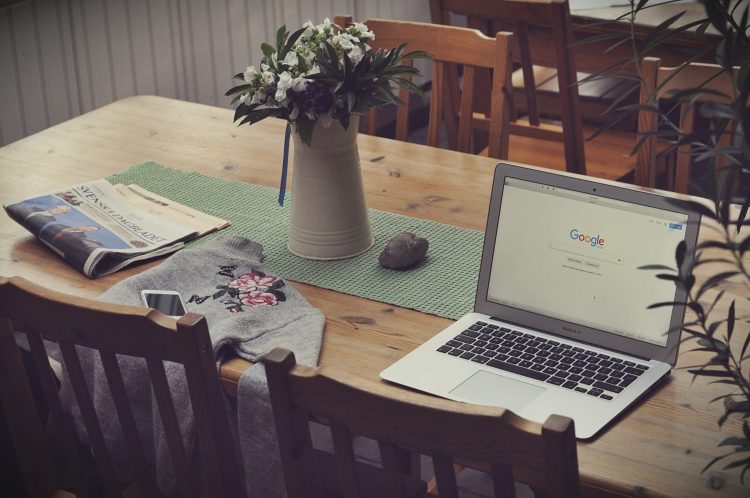 Source: Agnieszka Boeske auf Unsplash
Source: Agnieszka Boeske auf Unsplash
Home Office: The New Convention of Work
29. September 2020 Published by Raphael DoerrThe home office is the burning issue of our times. The coronavirus pandemic seems to have changed the world forever. U.S. tech giants, as well as leading German companies, will give their staff far more freedom in choosing where they work in the future.
Only time will tell whether this is an overreaction to the current uncertainty – or a move that is in keeping with the times in an already increasingly connected world in which overcrowded offices and compulsory presence during rigid core hours are concepts of the past anyhow.
Employees are also ambivalent about the change: It’s a blessing for some, but a curse for others. No more traffic jams in the morning, focused work, briefly doing a household chore in your lunch break or relaxing on your own couch versus a lack of real-life social contacts, isolation and possibly longer and longer periods of work, since the lines between private and professional life blur at home, your lunch breaks get shorter and you finish work later – because there’s always something to be done.
The home office poses many challenges for us. But I’d like to deal with another issue in this context. I’m currently experiencing a situation where managers are afraid of losing control over their employees and what they’re doing as a result of remote work. The biggest worries include employees working a shorter time than they should, being absent without telling anyone, and not doing their tasks or doing them less efficiently – the net result being a drop in productivity. But why these fears and are they justified?
Well, it’s never been the case at the office that the boss is waiting at the entrance with a time clock or hovers over employees non-stop to check whether they’re actually working or surfing in the web. So what caused the feeling that we’re under control in the office and all was right with the world there? Actually, purely the fact that employees are present in person and can be seen. We all know negative spin-offs of that: competing to see who can spend the most time in the office and the resultant fallacy that whoever stays the longest is the most productive and dedicated.
Any manager who has doubts about the impact of decentralized structures on his or her team’s efficiency and commitment is an unsuitable manager and has never understood or implemented the principle of leadership.
Purely a matter of trust
Yet if trust in employees is so shaken as a result of the home office, that begs the question of whether managers ever trusted them implicitly. The logical consequence is that if a manager cannot expressly answer whether he or she trusts employees with a clear “Yes,” the employees that can’t be trusted should be fired. Likewise, employees would have to be permanently ready to jump ship, since no one (unless it’s economically unavoidable) would want to hold down a job where they’re not trusted.
And in that context, managers would have downright doubts about the leadership abilities of their managers, whether they be heads of departments in large organizations or board members and managing directors in more compact structures. Any manager who has doubts about the impact of decentralized structures on his or her team’s efficiency and commitment is an unsuitable manager and has never understood or implemented the principle of leadership.
The New Deal
In view of the current changes, it’s vital to maintain and even strengthen a – mutual – spirit of trust despite the distance between us. At the end of the day, it’s not the number of hours we work that counts, but whether we’ve done our work in all good conscience and with the right results.
So what’s needed build trust from a distance? I believe what is required here is a mix of rules which employees impose on themselves to make their daily work easier and demonstrate their loyalty to the company, coupled with clear rules the company sets for them. You could term that mutual self-management.
Employees will find it easier to work from home if they adopt specific rituals or habits (see my article on the subject) – perhaps taking a short walk before starting work or dressing appropriately in their own four walls, for example. These routines, compliance with the rules and the joint agreements with supervisors and fulfillment of commitments under them will strengthen the relationship of trust.
Supervisors will feel more secure and soon forget the fear of losing control if core hours, meetings and deadlines are clearly defined and, above all, are also observed. If a colleague gives reasonable notice that he or she will be absent, the whole team can adapt to that.
How are you as a manager or employee experiencing the current shift from office work to the home office and what is helping you keep the team together and establish the New Deal? I look forward to talking with you on the subject, and I’m naturally aware that there are already hundreds of companies that have long worked in a completely digital and decentralized manner. However, the home office – especially in the context of “old industry” – seems to be a highly emotional issue.
Raphael Dörr July 31, 2020, LinkedIn
 Comments
Comments
 en
en 







